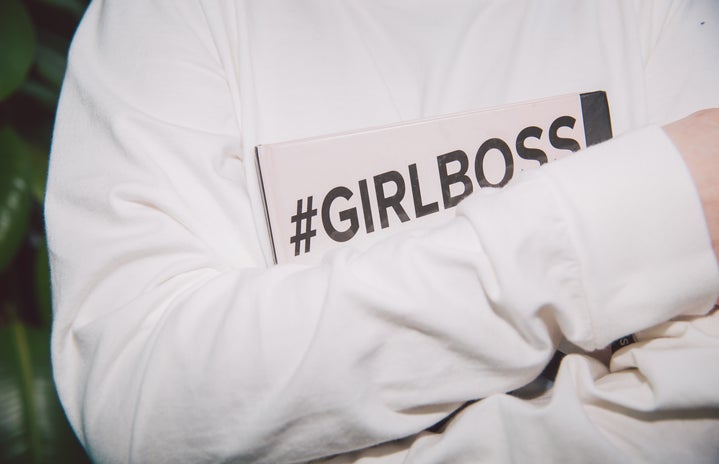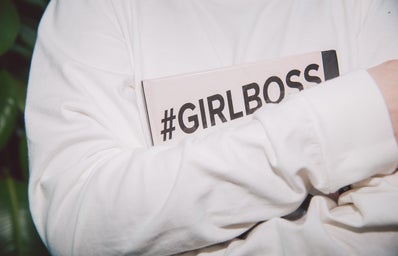Edited by: Teista Dwivedi / Lynx
Regina George walked so Blair Waldorf could run. We cannot deny that we have all rewatched Legally Blonde in desperate times— when we severely needed academic motivation, or just wanted to relive the iconic rain kiss in Hilary Duff’s The Cinderella Story. Chick-flicks and the iconic Y2K tan spray makeup have formed the epitome of our childhood— but somewhere in this pop culture fantasy lies deep-rooted stereotypes and issues with the portrayal of feminism.
Films like Mean Girls (2004) depict so-called queen bees like Regina George. Famous high school queen bees have not just influenced the genre of rom-coms in the film industry but also had an impact on fashion aesthetics. Pretty Woman and Miss Congeniality are films enjoyed by women of all ages. However, the deep romanticization of the ‘mean girl’ altering her boss-like vibe and adapting to an alter ego to be more appealing and likeable to a man is problematic, to say the least. The depiction of feminism in such films often comes across as sexist when the female protagonist is heavily dependent on a romantic relationship. The girl ultimately kisses her dream guy at the high school prom, and her entire character arc defines her personality. Such a moment comes off as pretentious and quite flamboyant as it depicts the absolute need for a girl to end up with a guy by the end, or else her ‘purpose’ remains unresolved.
The term ‘girlboss’, often associated with characters like Regina George, is confused with being selfish, rude with a dominating nature and lacking any empathy. Such a perspective is seen as provocative and nasty, since it violates the perfect girl who abides by what people tell her. It paves the way for misogynistic ideas and degrades feminist values. In Legally Blonde, we see Elle Woods, head of the Delta Nu Sorority. Elle gets mocked when she tells people she wants to study Law at Harvard University. She faces ridicule because she is a ‘dumb blonde with daddy’s plastic’ and does not fit the image of an intellectual lawyer owing to her hot pink attire. Warner only accepts Elle when she meets his need to be a self-sufficient and successful lawyer, which enhances his social image and status. People are afraid of such a girl boss winning and asserting her autonomy. They look down upon them and connote derogatory terms to such women.
The glorification of the term girlboss has drastically transitioned over time. References to such women are prevalent in many recent characters like Shiv Roy from Succession. Despite not being her dad’s ‘number one boy’ like her brother Kendall, she tends to assert her authority and makes her presence felt at Waystar Royco. A woman who is shallow in character with a dictatorial nature comes across as pompous because she violates patriarchal societal expectations. Representation in most chick flicks is inadequate and mediocre. We see this representation in 13 Going on 30, starring Jennifer Garner. Jenna dreams about her perfect life in New York and desires to be ‘thirty, flirty and thriving’ by the time she is of a certain age. While there is nothing wrong with settling down and marrying the man of your dreams, this still occurs as a recurring pattern in most chick flick movies, and it compels us to think: Is the prospect of a secure matrimonial relationship all a woman needs, devoid of which her life is meaningless?
Consuming this kind of media and relating it to various aesthetics and tropes has also led us to romanticize deeply problematic themes recurrent in the industry. Iconic makeover scenes are a pivotal point in most romcoms. In movies like Princess Diaries and She’s All That, both Mia and Laney undergo a magical makeover session to get over their boring wardrobe malfunction. Moments like these are instances when the male romantic interest who was previously uninterested in dating them is suddenly attracted to them. This further strengthens the fact that women need to look a particular way to grab a man’s attention which further heightens the frequent need of a man’s approval and the overall needy stereotypical character of women in such films. However, wearing excessive makeup and acting goofy is disapproved of and considered improper. Majority of the protagonists of 2000s teen films comprise heterosexual, cis, and white females, which again points to the problematic fact that maybe not all girls can take control of the narrative and this notion must be altered at all costs.
I believe that the cult of teenage cinema, including chick flicks, must undergo a severe rebranding and make an attempt to fix the problematic tropes and do away with sexist and stereotypical perspectives. Characters like Maddy Perez from Euphoria and Cher from Clueless have never needed a man to be self-sufficient and confident of their abilities to take over the world (‘ugh, as if’). By understanding true feminist ideologies, we can make a difference and implement accurate representations of the perfect girlboss in mass media and bring forth the true meaning of feminism. Female romcom protagonists and plots should be written with more nuance and depth instead of depicting them as naive and needy adolescent girls. Media should be more inclusive to people of all races, castes, genders and colors while portraying strong, independent women who are heroines in their own stories like Elle Woods and Viola from She’s the Man, characters who accepted their flaws and worked their way to be the greatest. Being a girlboss is a source of inspiration to younger girls who look up to the prospect of spreading their wings and breaking conventional borders because, in the wise words of Winona Ryder in Heathers (1988), ‘Heather, my love, there’s a new sheriff in town.’


